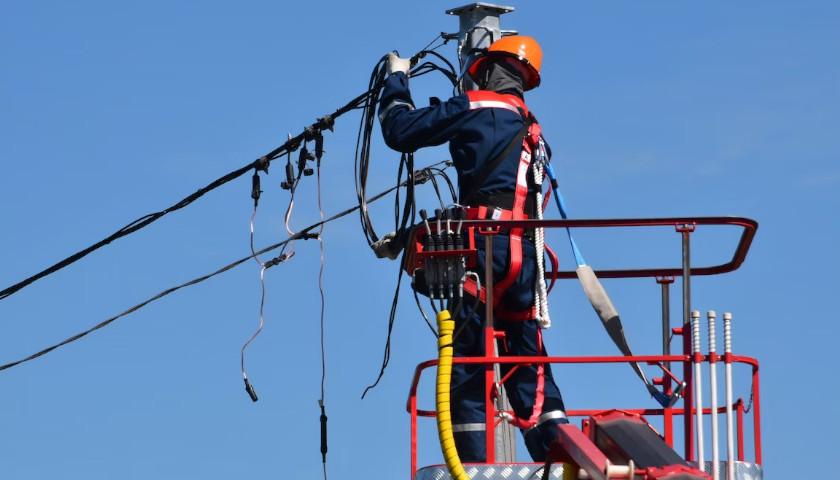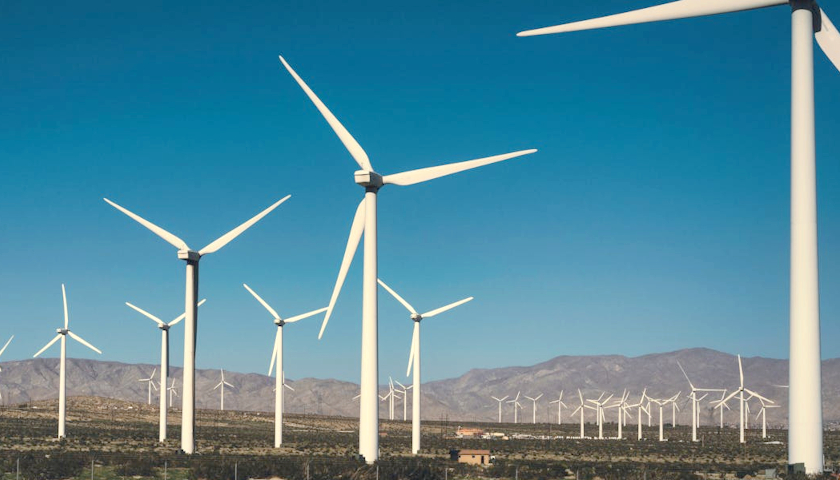by Scott McClallen
Multiple times in 2021, Michigan’s utilities left more than 100,000 people in the dark after powerful storms uprooted trees and left inches of ice coating power lines – more than its Midwest neighbors, according to federal data.
The U.S. Energy Information Administration’s annual 2021 electric power report says Michiganders faced more than 800 minutes of electric interruptions in 2021 that lasted longer than five minutes – nearly double the national total and more than its Midwest neighbors.
Illinois witnessed fewer than 200 minutes in the dark for more than five minutes. Ohio saw a little more than 200 minutes. Indiana saw a little more than 300 minutes, and Wisconsin approached 400 minutes in the dark for more than five minutes.
DTE Energy, which provides electricity or gas to about 2.2 million Michiganders, says downed trees and branches on wires and equipment account for two-thirds of outages.
The utility says it has spent $586 million in tree trimming since 2020 and plans to prune every mile of its grid by 2025 and run a five-year cycle.
DTE plans to upgrade substations, replace power poles, and switch to a better grid to pinpoint problems quickly. DTE says some grid portions date back to the early 1900s.
DTE Communication specialist Ryan Lowry told The Center Square the utility will replace baseload energy generation from retiring coal plants with more nuclear, natural gas, and energy storage.
DTE will convert its Belle River Power Plant in 2025-26 from a coal-fired 1,270-megawatt baseload plant to a natural gas peaker plant used during the highest electricity demand and will retire its diesel-fueled River Rouge and St. Clair peaker plants in 2024.
Lowry said the Blue Water Energy Center will replace three coal plants and provide 24/7 reliable energy.
In February, utilities left more than 1 million Michiganders in the dark for more than seven days after a storm.
Jason Hayes, director of energy and environmental policy at the Mackinac Center for Public Policy, said power outages are “becoming the norm for Michigan residents” despite Michigan utilities charging higher rates for tree pruning and distribution line maintenance.
“DTE’s plans to trim more branches are a start, as it will begin to address the repeated and extended outages that have been caused by inclement weather,” Hayes wrote in an email. “But DTE customers should note that the utility’s tree trimming plans will require increased rates for their electricity services. What is even more interesting, is that, at the same time as they are attempting to improve the reliability of their distribution services, they are actively working to decimate the reliability of their generation and transmission services.”
Hayes said utilities’ “rush” to stop using fossil fuels will leave utility customers “increasingly exposed to blackouts and restrictions on energy supply…”
He called on Michigan utilities to retain reliable generation facilities “powered by domestically produced fuels and working to ensure their continued environmental performance,” instead of relying on solar panels often made with child slave labor in the Congo and China.
– – –
Scott McClallen is a staff writer covering Michigan and Minnesota for The Center Square. A graduate of Hillsdale College, his work has appeared on Forbes.com and FEE.org. Previously, he worked as a financial analyst at Pepsi. In 2021, he published a book on technology and privacy. He co-hosts the weekly Michigan in Focus podcast.





